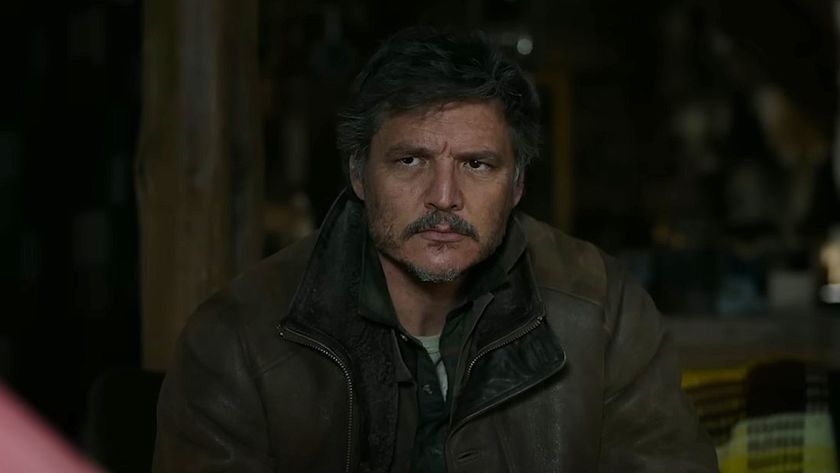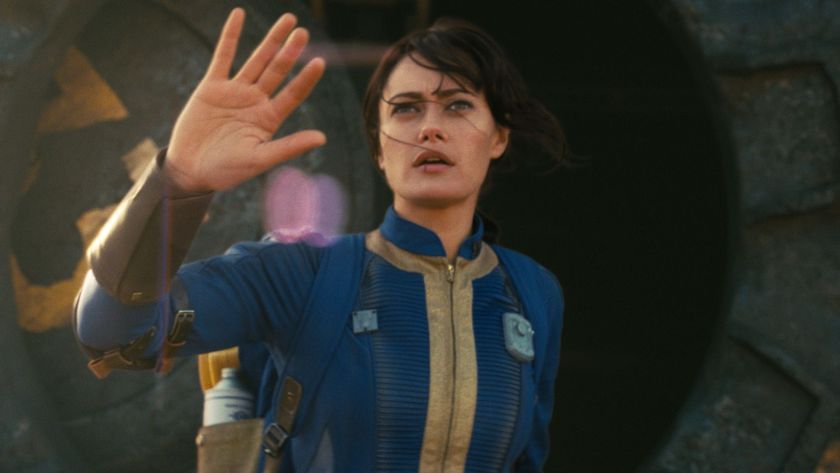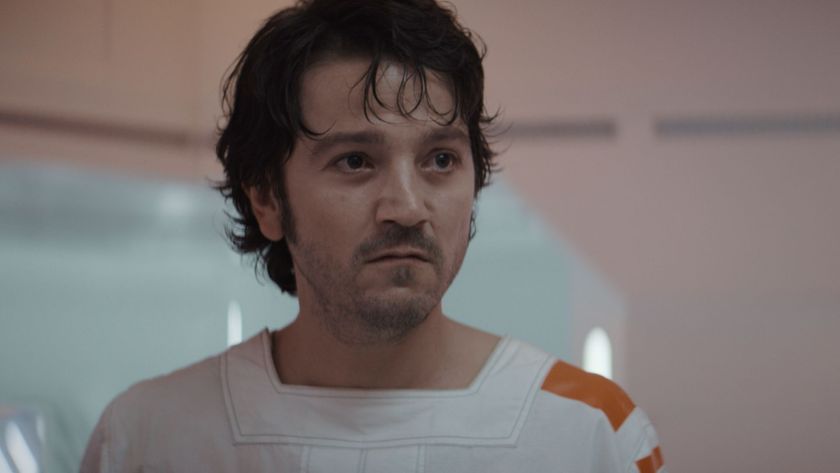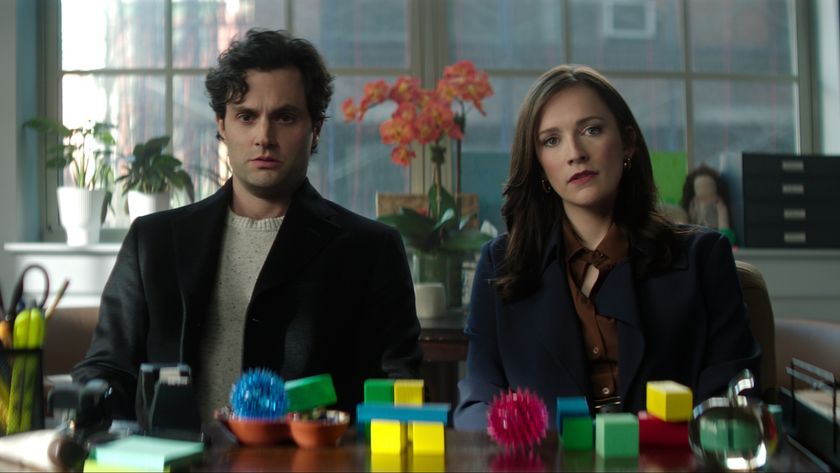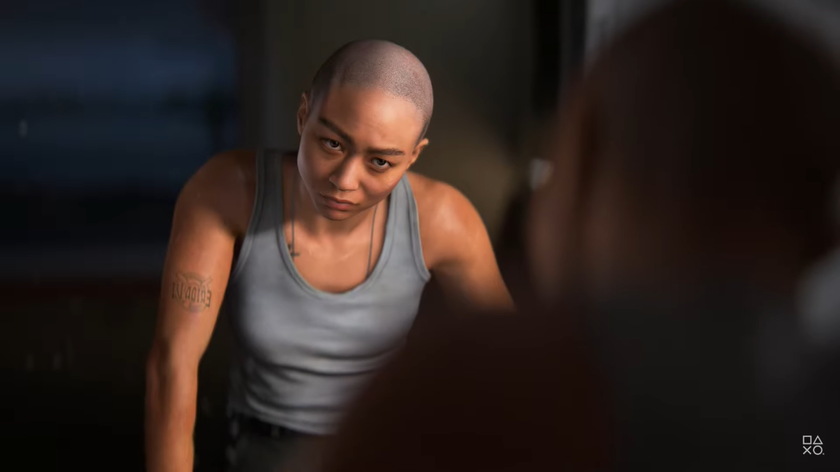INTERVIEW Iain M Banks, Part One
None
The bestselling author exclusively answers the questions of SFX readers: will he ever pen a Doctor Who story, feel like a slave to New Scientist or create a Culture Bible ?
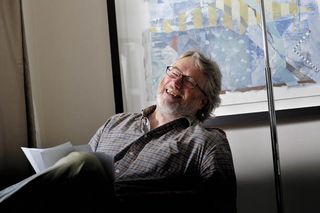
In issue 202, on sale 20 October, hugely popular novelist and man of Culture Iain M Banks takes time out of his writing schedule to answer your questions. He spent so much time with us going through your posers that we couldn't fit it all in the magazine, so here are the rest. His latest Culture novel, Surface Detail (four stars in SFX 201), is in the shops now, and you can read the first chapter here .
Michael Moorcock has just written a Doctor Who novel. Could you ever be persuaded to write in a shared or tie-in or spin-off universe? DNSf, Wolverhampton
Banks: “Probably not. They always need rules, these shared universes. I was talking to Paul Cornell and he said that in a Doctor Who story, the rule is that the monster has to go back in the box at the end of the programme or series or book. This is to reassure the kids, I suppose. I immediately thought, ‘I couldn’t do that!’ I’d instinctively want to give them a script where the monster escapes and carries on! And they’d reject it obviously.
“Much as I might admire individual instalments, I can never take Doctor Who or James Bond seriously because of the lack of ultimate jeopardy. You know that the Doctor is never going to be harmed seriously – even if he regenerates, he won’t die! Same with James Bond – his girlfriend might die, but he’ll be back. So there’s a lack of jeopardy there, whereas you may have noticed I have a penchant for killing off many of my major characters! I don’t think I’m a good fit for that sort of spin-off story. I’d be happy to be asked but I’d probably say no.
“Can I just say it’s well past time for a female Doctor?! The new chap Matt Smith, with his floppy hair, seems perfectly good, but I really thought it would be time for a lady Doctor. I thought Tamsin Greig would have been a brilliant Doctor.”
I, like you, went to Stirling University. I heard that you once, while visiting our alma mater , interrupted a lecture on one of your books to tell the class that what they’d been told was rubbish! Did this really happen? Dave, Sweden
Sign up to the SFX Newsletter
Get sneak previews, exclusive competitions and details of special events each month!
Fooling on from that, do you find yourself being contacted by students who are writing theses on your work? SFX
“Rarely now. I think there’s an etiquette about how students are encouraged to go about contacting authors if they’re doing research. I did get a couple of letters once asking me questions, but what they were really saying I suspect was, ‘Please write my dissertation for me!’ Some really vague and general questions asking me to write a reply discussing the themes of my work. They might as well add, ‘3,500 words by next Tuesday please.’ F**k off!
“That’s extremely rare now, though, and to be honest I don’t mind if people are specific and have a genuine query. There are, of course, questions you cannot answer as a writer. You’re always going to be subjective about your own work. When you’re reading back your own books you’re still hearing in your mind what you meant to say, so there are some things that are impossible to respond about. I get embarrassed! I have to admit, ‘It’s not my place to judge my own work – I can’t tell you what my place is in the canon of science fiction!’ Or whatever. You can’t answer them fairly. But things that are specific to the work I have no problem with, and I’ll answer letters like that fairly often. It can be fun and makes you think. The best questions that come from academics or students are ones that make you think differently about something you’ve written.”
Do you maintain a “bible” for the Culture universe, a big folder where you keep track of everything you’ve created so you don’t get muddled? Anne Smith, email
Banks: “It’s not as formal as that, but I do have a big document I’ve been pulling together over the last few years. It does have a long way to go though; I’ll need to sit down and read through all my novels again like a copy editor would and note down all the details. It’s a big chore – not just reading an awful lot of words, but because I’d have to read them really carefully bit by bit. I imagine I’d start reading it slowly and then get caught up in the story!
“But one of things I did start writing down recently was the emotional colours of the drones, the colours that their fields go. I found myself wondering, ‘What colour does a drone’s emotional field go when it’s being sarcastic?’ I’d simply forgotten over the years! So I needed to write this stuff down. I also have a big list of ship names arranged alphabetically. There’s about 2,500 of them! It’s so that I won’t repeat the name. I make notes of the names of ships that I’d like to get in. When Transition comes out in paperback we’re releasing an iPhone app so I suppose this sort of thing might end up on an app in future.”
SF walks a line between fiction and science. Do you feel restricted by trying to make your story fit accepted science? How far can you just make stuff up as a science fiction author? Jennifer, email
Banks: “I think it’s incredibly obvious that I just make it all up [laughs]! My fig leaf here is Arthur C Clarke’s ‘any sufficiently advanced technology is indistinguishable from magic’. There’s a lot in my books which looks like magic, so it must science! Don’t inspect the logic of that too closely...
“The short answer is that I’m not restricted at all, even though your inventions should always have some sort of internal logic. The important distinction is that it has to feel plausible at some level. The writer and reader have to believe in it. It looks fairly certain that we’ll never get faster than light travel, it might be possible with wormholes or something but the science in that sense is not to be taken seriously – it’s a background, if you like: an enabling factor for the story. It’s vanishingly unlikely that a galactic meta-civilisation would even exist let alone resemble the Culture! My books are simply a way of trying to address problems that humanity, if we’re lucky, might face in the future, and how we might behave if we ever live in a post-scarcity civilisation.”
Iain M Banks on his writing routine, film scripts and lots more besides in Part Two tomorrow…

Dave is a TV and film journalist who specializes in the science fiction and fantasy genres. He's written books about film posters and post-apocalypses, alongside writing for SFX Magazine for many years.

